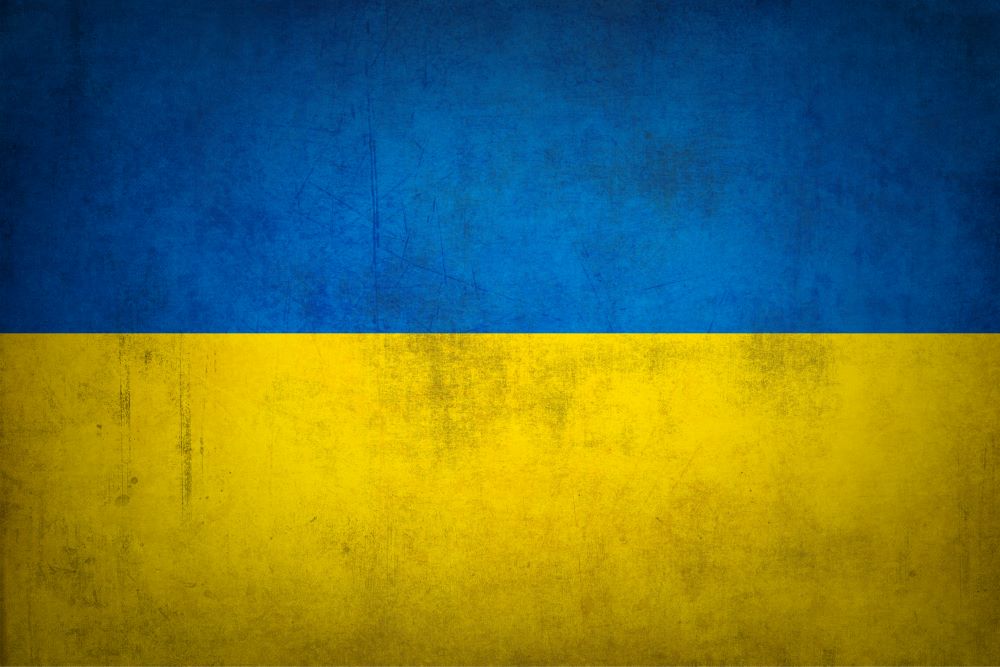
Tomorrow, Friday (24 February), marks the first anniversary of Russia’s invasion of Ukraine.
Russian president Vladimir Putin sent in up to 200,000 soldiers into Ukrainian territory, in what amounted to the largest invasion of European territory since the second World War.
Ahead of the one-year anniversary, the IOE&IT Daily Update looks at the latest developments in this conflict, including its continuing effects on international trade.
Biden backs Ukraine
US president Joe Biden said his country’s support for Ukraine “will not waver”, just hours after Putin delivered his own address.
Approaching the anniversary of the invasion, Biden said that the response of the US and its allies had deprived the Russian leader of the victory he expected, reports Sky News.
“Democracy was too strong. Instead of the easy victory he perceived and predicted, Putin left with burnt-out tanks and Russia’s forces in disarray,” said Biden.
In his speech, Putin re-committed to the war, framing it as a struggle for Russia’s future.
The Guardian reports that a UN resolution, condemning the invasion and calling for an unconditional withdrawal from Ukraine’s territory, is expected to pass with a large majority despite possible abstentions from countries in the global South.
According to the BBC, Biden said the allies will announce more sanctions so they can “seek justice for the crimes against humanity committed by Russia”.
EU sanctions
Twelve EU member states are calling for a clampdown on the circumvention of EU sanctions on Russia by using trade and access to the European single market as leverage, reports Reuters.
As EU members discuss their tenth sanctions package, countries such as Spain, Italy and Romania called attention to “creative” efforts by Russia to avoid sanctions.
According to these nations, the trade bloc should issue official warnings to persons or entities that they could be violating sanctions, create watch-lists of companies and industries of special concern and encourage firms to put obligations into contracts on the end-use of their products.
No agreement has yet been reached in European circles on his next package of sanctions.
Russia is said to have seen a reduction of 5% in its GDP in 2022 and this will be much worse in 2023, according to Philipp Lausberg, a policy analyst at the European Policy Centre.
“So far, I think the sanctions that the EU has introduced have had a limited effect on Russia’s ability to finance its war, but a lot of these sanctions are designed to work in the long run,” he told Euronews.
Energy cost
The war has seen global energy patterns shift, as Russia choked off gas supplies to allies of Ukraine.
Before the war, 40% of natural gas and 27% of oil imports to Europe came from Russia.
The UK’s over-reliance on gas cost the UK the equivalent of £1,000 for every adult, according to a study by the Energy and Climate Intelligence Unit (ECIU).
The ECIU also found high wholesale gas prices have cost UK energy suppliers an additional £50-60bn, on top of the £10-20bn spent in a normal year, reports the Guardian.
Major energy companies left Russia, prompting the largest shift in the global oil market in decades, with Russia now sending its oil to China and India while the West seeks new suppliers.
Meanwhile, last year saw wind and solar overtake natural gas in Europe for electricity generation, reports Vox.
Solar energy especially is on an “unstoppable” growth path, said Dave Jones, an analyst at the energy thinktank Ember. Solar capacity in Europe doubled since 2018 and is on track to triple in the next four years.
Supply chain changes
It isn’t just energy flows that have been hit, as world supply chains continue to suffer the consequences of the war.
Shipping giant Maersk has sold its last two Russian logistics sites following a deal with Cyprus-registered IG Finance Development, reports the Loadstar.
Maersk announced last March it would discontinue its Russian operations and last August sold its 30.75% stake in Russia port operator Global Ports Investment.
The disruption to global supply chains has hit some countries worse than others, according to Asoo Vakharia, a supply chain researcher at University of Florida.
Vakharia said that while the West has been able to seek new suppliers, poorer countries that rely on Ukraine or Russia for grain have been less able to do so.
Ukrainian exports have also been affected. Agriculture and manufactures – semi-finished products that are shipped outside the country – were the two dominant products and have been seriously disrupted by war damage and naval blockades.
Ukraine grain deal
Agricultural exports have been a major point of focus for international negotiations, as the world struggles to address the rising cost of food.
The Black Sea grain deal, brokered by the UN and Turkey, sought to address this problem by creating safe passage for ships carrying these products.
Ukraine is expected to start talks to roll over the Black Sea grain deal, extending the agreement which permits grain to be exported from three Ukrainian ports, reports Reuters.
It will also request the new deal would include the ports of Mykolaiv, a senior Ukrainian official said.
Ukraine exports around three million tons of agricultural products monthly under the deal
Yuriy Vaskov, Ukraine’s deputy minister of restoration said Mykolaiv’s ports, which accounted for 35% of Ukrainian food exports before the Russian invasion, were ready to join the initiative and would need a maximum of two weeks to start operations, reports the Daily Sabah.



